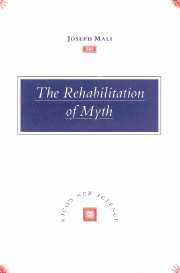3 - The revision of mythology
Published online by Cambridge University Press: 30 September 2009
Summary
And surely the myths are, as a whole, false, though there is truth in them too.
Plato, The Republic, 377aMythologia, prima rerum historia, cur hactenus infelix?
G. B. Vico, De universalis jure, ii, P.P., 1, 9The Survival of the Pagan Gods in Western Christian civilization, as Jean Seznec has taught in the book bearing that title, is so obvious that it needs no proof: ‘Even the gods were not restored to life’, writes Seznec, ‘for they had never disappeared from the memory or imagination of man’. The legendary figures of Prometheus, Orpheus, and Narcissus; the heroic adventures of Jason, Odysseus and Aeneas, and the tragic tales of Medea, Oedipus and Antigone; these and other tales have exercised an unbroken authority over the imagination of poets, philosophers, theologians, explorers, and laymen in the West. Although these Greek figures are clearly defined by and in concrete local conditions, they have not been confined to them; on the contrary, they have proven to be perfectly adaptable to changing times and tastes. To the European eye they appeared to be supra-national, seemingly devoid of any religious or ethnic identity, and over the centuries they have created a network of concrete references which, alongside the Biblical figures, established for all the European nations a complete repository of ideas and examples on which they have built much of their own cultural lores.
- Type
- Chapter
- Information
- The Rehabilitation of MythVico's 'New Science', pp. 136 - 209Publisher: Cambridge University PressPrint publication year: 1992

